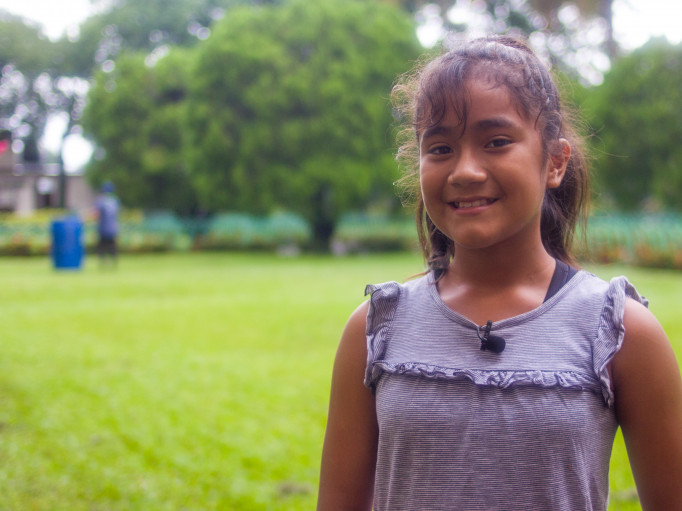“Not having my birth certificate made me feel so sad because I didn't feel like I legally belonged in my country.” Alma

Alma’s first three years of life were about as difficult as you could imagine. Her father was never on the scene and her mother was living on the streets at the time she was born, depending heavily on alcohol to get through each day. She was rarely sober and unable to feed Alma herself, so she regularly replaced milk with beer as the main part of Alma’s diet as a baby. Alma’s grandmother, Vinciana, tried many times to take Alma and her older brothers to her house to care for them properly, but whenever her daughter was sober, she’d turn up at the house with the police, demanding to have her children back. With no argument to make against the children’s mother, Vinciana, often had no choice but to send them back to the streets with her daughter.
Grandma to the rescue
Then one day, when Alma was three years old, her grandmother, Vinciana, got a call from her daughter’s neighbours saying that Alma was just alone in the room the family was staying in, crying while her mother was out on the streets drinking. This was the final straw for Vinciana and she officially requested custody of Alma and her brothers. Fortunately it was granted and Vinciana and her daughter agreed a visitation schedule so that the children would still be able to grow up knowing their mother. However, one the few occasions when Alma did go with her mother, Vinciana often received calls to say she’d been left at home alone again while her mother was out drinking, or that she was sleeping on the street while her mother partied. Eventually, visits to Alma’s mum became impossible and Vinciana just allowed her to visit the children at her home.
Now, Alma lives with her maternal grandmother, two of her brothers, an aunt and a cousin since her oldest brother left with their father to make the long journey to the United States. Her house is in one of the most violent areas of San Salvador.
“Now that the state of emergency is in place, there are fewer gang members on the streets, but there are always several living in the neighbourhood. Before, it was common to find ourselves in the middle of gun battles – the children too.” Vinciana, Alma's grandmother

Vinciana supports Alma and her brothers through her handicraft sewing business, which she sells on the streets and to neighbours. Alongside this, she’s employed in a government factory to make uniforms annually at the start of each school year and to top up the family’s income, she cleans houses by the hour. It’s enough to get by and keep the family fed and healthy.
Off the streets and now in school
Now, Alma is 11 years old and in Year 5 at a school in her community. More than anything, she loves to play football. Every Sunday, she puts on her boots and plays with her team as the only girl in a group of boys. But getting accepted into the squad wasn’t easy because she doesn’t have a birth certificate. In fact, she only managed it because her grandmother promised that she’d be getting her identity documents soon, although at that point, she didn’t know how she was going to manage it.
Not long after however, she had an answer to prayer because she learned about Viva’s birth registration programme that was helping children like Alma to get their birth certificates through one of the leaders at her church. Here, Alma tells us more about the process and what it meant to her not being officially registered.
“My parents didn’t get my birth certificate for me when I was little – I think just because they didn’t want to. It made me feel so sad because I didn’t feel like I legally belonged in my country. Not having my birth certificate meant I wasn’t legally recognised and I couldn’t go to school very easily because they wouldn’t accept me without proof of who I was.” Alma

"The process was long – it took about 13 months. We had to do a DNA test with my grandmother to prove that we were related and then we had to give evidence in front of a judge before I could get my birth certificate. It finally happened in January 2022.
Now I’ve got it, I feel happy now because when I’m older, I’ll be able to do my dream job. I want to have a good job and I want to be bilingual! I also want to play football. I feel sad when I think about the fact that my parents didn’t get my birth certificate before and that my grandmother has had to do all this on her own.
To other children who don’t have their birth certificate, I’d say that they shouldn’t give up and I’d tell parents they should register their children so that they don’t feel bad about themselves or ever feel like they’re not legal in their country like I used to. Also, so they can work when they’re older. I’d tell them to make sure their parents are taking responsibility for them in life and for getting their birth certificate.
I feel happy now I’ve got my birth certificate because I can go to school, and go to other places to play, and I can legally work when I’m older.”
